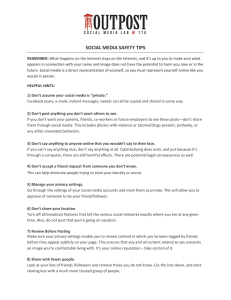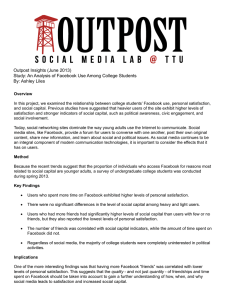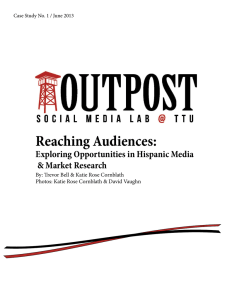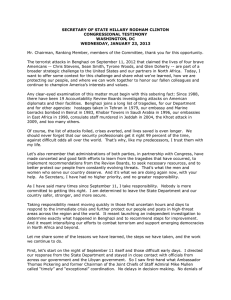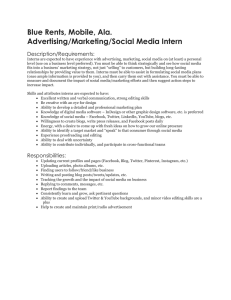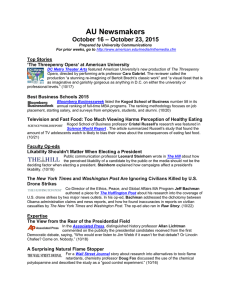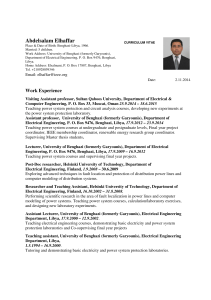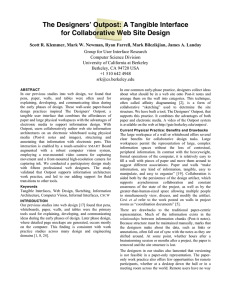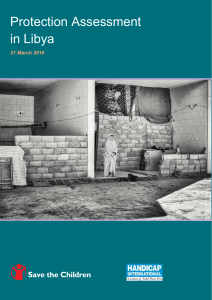Outpost Insights (June 2013)
advertisement
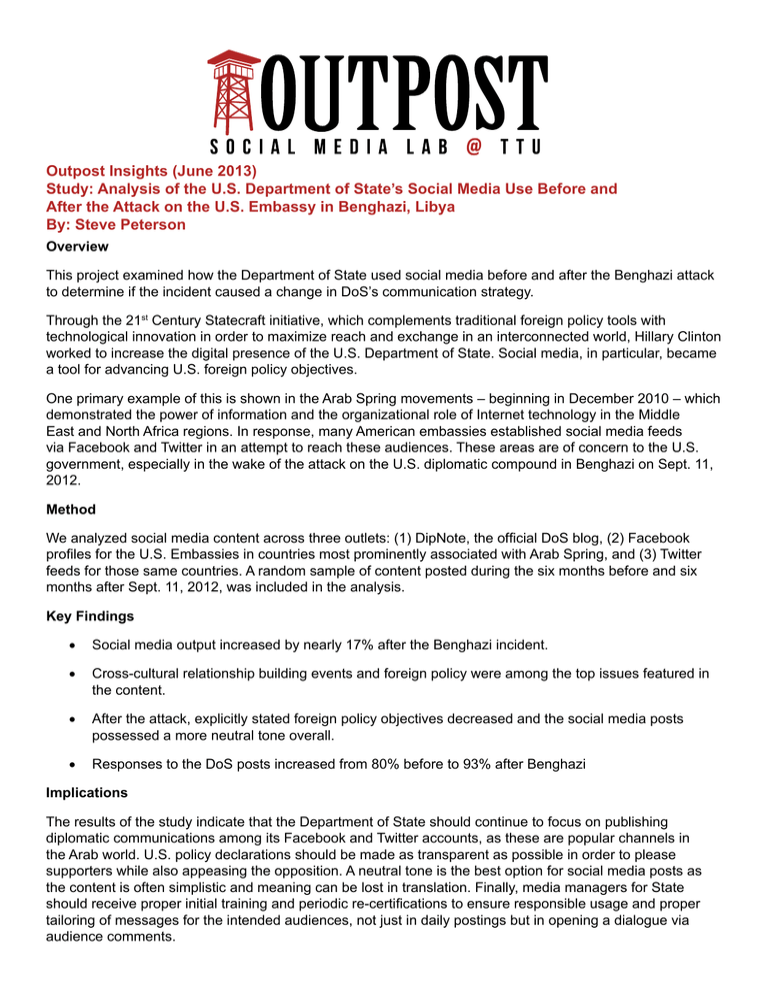
Outpost Insights (June 2013) Study: Analysis of the U.S. Department of State’s Social Media Use Before and After the Attack on the U.S. Embassy in Benghazi, Libya By: Steve Peterson Overview This project examined how the Department of State used social media before and after the Benghazi attack to determine if the incident caused a change in DoS’s communication strategy. Through the 21st Century Statecraft initiative, which complements traditional foreign policy tools with technological innovation in order to maximize reach and exchange in an interconnected world, Hillary Clinton worked to increase the digital presence of the U.S. Department of State. Social media, in particular, became a tool for advancing U.S. foreign policy objectives. One primary example of this is shown in the Arab Spring movements – beginning in December 2010 – which demonstrated the power of information and the organizational role of Internet technology in the Middle East and North Africa regions. In response, many American embassies established social media feeds via Facebook and Twitter in an attempt to reach these audiences. These areas are of concern to the U.S. government, especially in the wake of the attack on the U.S. diplomatic compound in Benghazi on Sept. 11, 2012. Method We analyzed social media content across three outlets: (1) DipNote, the official DoS blog, (2) Facebook profiles for the U.S. Embassies in countries most prominently associated with Arab Spring, and (3) Twitter feeds for those same countries. A random sample of content posted during the six months before and six months after Sept. 11, 2012, was included in the analysis. Key Findings • Social media output increased by nearly 17% after the Benghazi incident. • Cross-cultural relationship building events and foreign policy were among the top issues featured in the content. • After the attack, explicitly stated foreign policy objectives decreased and the social media posts possessed a more neutral tone overall. • Responses to the DoS posts increased from 80% before to 93% after Benghazi Implications The results of the study indicate that the Department of State should continue to focus on publishing diplomatic communications among its Facebook and Twitter accounts, as these are popular channels in the Arab world. U.S. policy declarations should be made as transparent as possible in order to please supporters while also appeasing the opposition. A neutral tone is the best option for social media posts as the content is often simplistic and meaning can be lost in translation. Finally, media managers for State should receive proper initial training and periodic re-certifications to ensure responsible usage and proper tailoring of messages for the intended audiences, not just in daily postings but in opening a dialogue via audience comments. About the Author Steve Peterson is a recent graduate of the College of Media & Communication’s professional master’s program. This research was conducted as part of his Master’s Report project under the supervision of Dr. Trent Seltzer. About The Outpost Social Media Lab @ TTU The Outpost Social Media Lab @ TTU is the College of Media & Communication’s center for the study of new media. The lab produces professional insights and analysis, hosts training seminars and workshops, supports project implementation for classes and clients, engages in community outreach, and conducts applied and basic research in social, online, and digital media. The Outpost features a world-class social media command center where undergraduate and graduate students can conduct live monitoring of news and events to provide real time analysis of public sentiment and reaction across the social web, as well as engage with audiences and curate content. The Outpost provides College of Media & Communication students with real-world experience in the growing field of social media listening and engagement. The lab also provides data collection services for academic research in one of the fastest growing areas of media and communication scholarship. Learn more at: http://www.depts.ttu.edu/comc/outpost/
